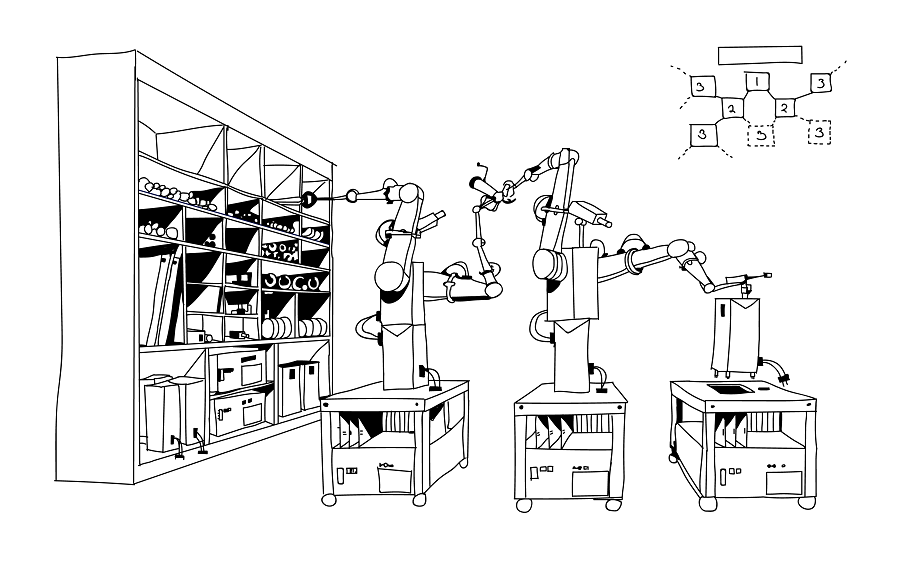Self-replication

Self-replication is the basis for all life.
Once a molecule is able to make copies of itself, life has begun to evolve.
Once evolution has started, consciousness and intelligence are inevitable, not unlikely. So is Love.
Want to see it in action and understand how self-organization and evolution are inevitable? Check out Conway's Game of Life.
Proponents of creationism and intelligent design often point to the "gap" between inorganic matter in the primordial soup and living cells as proof of some required divine intervention. However, they often fail to see just how simple the earliest self-replicating molecules would be. They don't even need to be able to create complete copies of themselves, they can simply be a catalyst that aids in the synthesis of its component molecules. That process creates more of the component parts (usually amino acids) which increases their concentration and makes it more likely that they will recombine into new copies of the catalyst protein. This indirect, stochastic self-replication is enough to start the process of evolution.
The fact that in the last 50 years we haven't been able to fully replicate the whole first billion years of evolution that brought us from simple self-replicators to living cells and multicellular organisms is not a valid argument against evolution or for intelligent design.